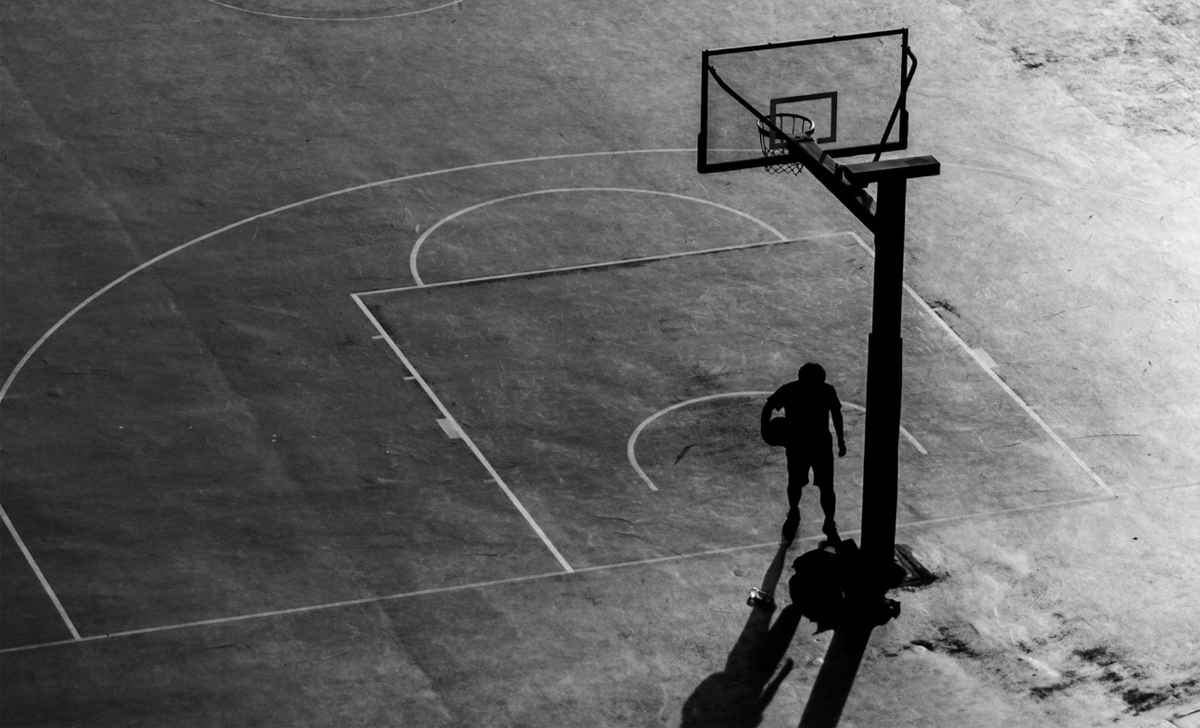
I knew tons of kids who wanted to dunk like Michael. I get the desire. Of course, none of my friends could actually dunk it like Michael. Jumping with a basketball, tongue sticking out, legs akimbo, is not the same as having the hang-time of Michael. Nowhere near. What Michael Jordan could do was, astonishing.
Failure is fascinating, isn’t it? People in the business world are always preaching about the value of failure. Steve Jobs was obsessed with the subject: “all fear of failure just falls away in the face of death, leaving only what is truly important” (Economist, 9/17/05, 68). The Pixar guy, Randy Nelson, says “you have to honor failure because failure is just the negative space around success” (Wired, 6/04, 133). Clever. Editor and publisher Wilfred Funk held the opinion that genius is nothing more than having the “capacity for taking infinite pains” (Jones, Principles and Practice of Preaching, 50). You see, these corporate-jet types are always preaching about failure - how it unleashes your inner brilliance and makes you, well, like them. Endure failure, and you can dunk it like Michael.
Artists preach this same sort of thing. Designer Yves Béhar says “we fail every single day, and every failure is a way to learn” (Fast Company, 10/2018, 85). UCLA art professor John Baldessari agrees: “art comes out of failure” (Thornton, Seven Days in the Art World, 52). Arkansas poet John C. Tribble writes about a fellow high school band mate who became a famous jazz musician after he was kicked out of band. The poet met him later in life and, in an act of respect, wrote aperion on his clarinet case (Greek for boundless) even though he misspelled it (“Anaximander Lewis”). Another failed-musician poet Marvin Bell writes how chaps like Miles Davis and Thad Adderley show us just how “bad” we really are ("The Fifties"). Apparently, some people can work through failure and play like Miles, or dunk like Michael, and some can’t. Which one are you?
Human beings, every last one of us, are failures. A significant part of life is grappling with our creaturely finitude. The body decays each and every day which means that none of us are superheroes of any kind (Marvel or DC). We fail. Regularly. Sometimes dramatically. We are very often astonishing in our failure.
Part of the motivation for our Advent sermon series this year is our coming face-to-face with our own finitude in life by discerning what God has to say to our failure. Perhaps you didn’t know this, but Christian people are not put here on earth to show the world how to persist through hardship, how to become stronger on the other side, or how to achieve our dreams against all odds. That message is preached to us by Elon Musk. We Christians ought to know that we are imperfect. But the proper response to our imperfection is not to persist through it and become stronger; it is to know and trust and live our daily lives within and through the perfection of Jesus. In His perfection we find the only antidote for our own failure. The answer to life’s missteps is not inner tenacity, but His external perfection.
Paul understood his own finitude very well (Philippians 1.23; 2 Timothy 4.6). His antidote for a life constrained by failure is for the Christian to embrace a life measured according to the gospel of Christ (Philippians 1.27). What does this mean? It means that life may result in not only failure, but suffering and death. Nevertheless, the Christian can endure failure; not because failure produces a more resilient company or more applause-worthy music, but because failure proves our radical need for dependence upon His success. The gospel tells us that the only failure-free Perfect One humbled Himself to the point of ultimate failure - death on a cross - and was exalted by God the Father. My failure is the tiniest sharing of His failure. My success is, well, nonexistent. I’ll never push through my failure to taste my own success. The success that I have is His success, covering both my failure and my attempt at success. The theologian would say it this way: His success is imputed to me. That is, I don’t get to dunk it like Michael. Michael dunks in my place, for me, instead of me, covering my athletic failure. And I don’t get to blow a horn like Miles Davis. Miles plays in my place, for me, instead of me, covering my musical failure.
Seventeenth-century English Presbyterian Stephen Charnock did not concern himself with tenacious endurance through failure. Instead, he wrote this:
“What a wonder it is that two natures infinitely distant should be more intimately united than anything in the world, and yet without any confusion! That the same person should have both a glory and a grief; an infinite joy in the Deity, and an inexpressible sorrow in the humanity; that a God upon a throne should be an infant in a cradle; the thundering Creator be a weeping babe and a suffering man, are such expressions of mighty power, as well as condescending love, that they astonish men upon earth, and angels in heaven” (Discourse on the Existence and Attributes of God, in Works, vol. 2, 150).
Are you aware of your own failure? Good. Now, are you astonished by His perfection on your behalf?
An aside: during Advent, it may not hurt to pick up a copy of Kelly Kapic’s book, You're Only Human: How Your Limits Reflect God's Design and Why That's Good News. Also, check out these articles: “Embracing our Finitude,” by Melissa Morgan Kelley and “Resting in Finitude.” by Justin Lonas.







